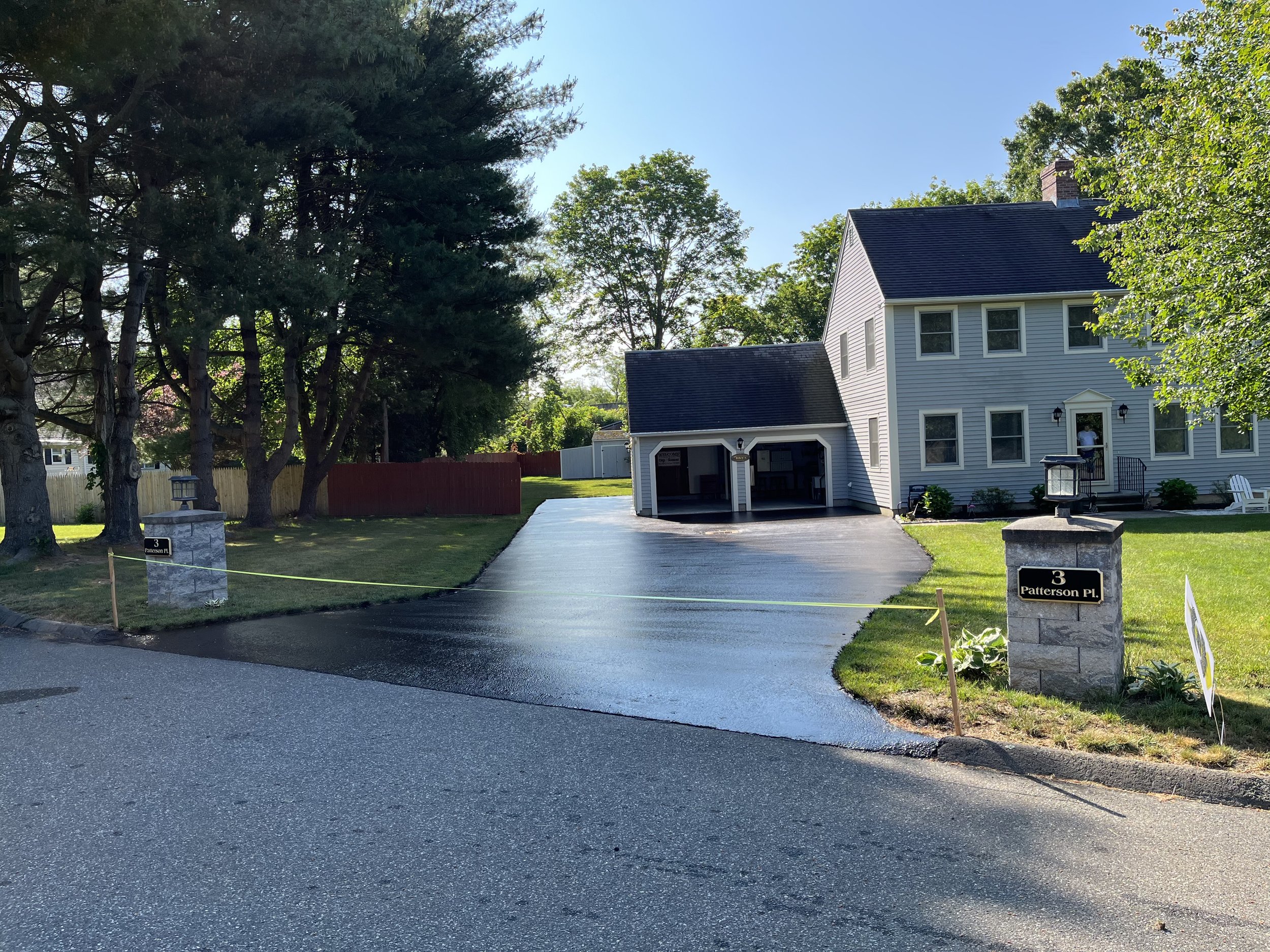Make Best Use Of Security with Angle Parking Areas: Superior Asphalt Sealing
Make Best Use Of Security with Angle Parking Areas: Superior Asphalt Sealing
Blog Article
Cold Mix Asphalt Vs. Hot Mix Asphalt: Which Is Right for You?

Composition Distinctions
Cold mix and hot mix asphalts differ considerably in their structure, with distinctive qualities that influence their performance and applications. Cold mix asphalt is created by emulsifying the asphalt binder with water and an emulsifying agent prior to blending it with aggregate. This method allows for the asphalt to be workable at lower temperature levels, making it suitable for short-lived repairs and for use in chillier weather. Hot mix asphalt, on the various other hand, is manufactured at heats, generally in between 300-350 ° F, which aids to attain much better compaction and an extra resilient end product. The warm mix asphalt manufacturing process entails heating up the aggregate and asphalt binder individually before combining them at the asphalt plant.
Furthermore, chilly mix asphalt often tends to be much less thick and a lot more adaptable than hot mix asphalt. This adaptability makes it far better suited for locations with higher degrees of movement, such as driveways or roads with heavy web traffic. In contrast, hot mix asphalt is understood for its high resilience and resistance to rutting and fracturing, making it a preferred choice for highways and high-traffic roadways where long life is critical.
Installation Process Differences
The procedure of setting up cold mix and hot mix asphalt shows remarkable variances in their treatments and needs. In comparison, warm mix asphalt requires a much more elaborate setup procedure. Due to the home heating demands, hot mix asphalt installations are typically brought out by experts with specific tools, guaranteeing an extra structurally audio and permanent result.
Sturdiness and Long Life Variables
When thinking about asphalt options, resilience and longevity are critical aspects to assess for long-term pavement efficiency. Warm mix asphalt (HMA) is known for its exceptional sturdiness and longevity. The heats throughout the mixing and laying process enable for far better compaction, causing a denser and more powerful sidewalk framework. This results in HMA being extra resistant to rush hour lots, extreme climate condition, and the impacts old contrasted to cold mix asphalt (CMA)
In regards to durability, HMA usually surpasses CMA due to its remarkable toughness and resistance residential properties. HMA pavements have a longer service life, calling for much less frequent repair work and upkeep, which can equate to cost savings in the future. Furthermore, HMA sidewalks are much more conveniently customizable to meet particular task requirements, additionally enhancing their toughness.
Price Factors To Consider
Taking into consideration the financial ramifications is an important facet when examining the selection between warm mix asphalt (HMA) and chilly mix asphalt (CMA) for pavement tasks. While the preliminary browse around this site expense of warm mix asphalt is typically higher than that of cool mix asphalt, HMA usually gives a much more cost-effective solution in the lengthy run due to its remarkable sturdiness and longevity.
In enhancement to material prices, it's vital to consider the expenses connected with installment and maintenance when contrasting HMA and CMA. Ultimately, the decision between HMA and CMA need to take into account not simply the initial cost however also the lasting monetary ramifications to determine the most cost-effective alternative for the details pavement project.
Environmental Impact Contrast
Contrast of the ecological effects in between warm mix asphalt (HMA) and chilly mix asphalt (CMA) reveals unique distinctions in sustainability techniques. HMA production calls for high temperatures, resulting in enhanced energy consumption and greenhouse gas discharges. The procedure also releases volatile organic substances (VOCs) and harmful air toxins (HAPs) into the environment. In contrast, CMA is generated and used at reduced temperatures, lowering energy use and exhausts significantly. The lower manufacturing temperature levels of CMA cause lowered gas consumption and lower levels of carbon dioxide exhausts, making it an extra environmentally friendly alternative.
Moreover, the use of CMA typically includes recycling existing asphalt pavement, advertising resource conservation and lowering the quantity of waste sent out to land fills. By deciding for CMA over HMA, roadway building and construction Discover More Here projects can contribute favorably to environmental preservation initiatives.
Final Thought
Finally, the selection between cold mix asphalt (CMA) and hot mix asphalt (HMA) depends upon different aspects such as composition, installment procedure, sturdiness, longevity, expense, and environmental impact. cold mix asphalt. While CMA uses a economical and fast solution for small repairs, HMA guarantees exceptional toughness and longevity for rush hour areas. Take into consideration these aspects very carefully to determine which sort of asphalt is the appropriate choice for your paving needs

Taking into consideration the economic find here ramifications is a vital aspect when evaluating the selection between hot mix asphalt (HMA) and cold mix asphalt (CMA) for pavement tasks. While the initial expense of hot mix asphalt is commonly greater than that of chilly mix asphalt, HMA often gives an extra affordable option in the long run due to its exceptional durability and longevity. cold mix asphalt.Comparison of the ecological impacts in between hot mix asphalt (HMA) and chilly mix asphalt (CMA) reveals unique distinctions in sustainability techniques.In verdict, the selection in between chilly mix asphalt (CMA) and warm mix asphalt (HMA) depends on numerous elements such as structure, setup process, toughness, long life, expense, and ecological impact
Report this page